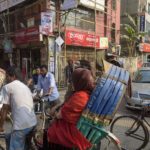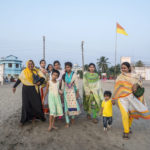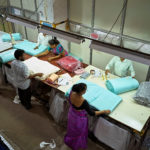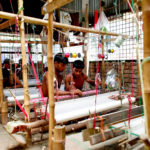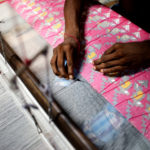Children who grow up in poverty are more likely to experience poverty in their adult lives, manifesting intergenerational poverty traps. Studies with long-term panel data show that the poverty status of households in their childhood is associated with their human capital, occupational choice, income, as well as their age of marriage, fertility, and migration. While…
Measuring the Long-Term Impact of Reducing Childhood Poverty
Paternalistic Discrimination
Women in South Asia are often excluded from the labour market, reducing their financial autonomy, and negatively impacting their physical and mental wellbeing (Verick, 2014; Field et al., 2021). Large government interventions have failed to close the gender employment and wage gaps for over two decades (NIPORT 2007–2017, BBS 2018). This shows that education and…
From Jobs to Careers
Women’s participation in the labour market increases economic growth at both the national and firm level, yet women worldwide still face significant labour market challenges. Current research on women’s labour market experience in developing countries mainly focuses on short-term jobs. We propose shifting the focus from jobs to “careers,” i.e., occupations characterized by a long-term…
Long-Term Labour Market Impacts of Adolescent Girls’ Empowerment Interventions in Bangladesh
In this study, we conduct a long-term follow-up of an empowerment programme (which raised labour force participation prior to marriage) and an anti-child marriage programme. We (a) investigate how exogenously changing adolescent girls’ (i) empowerment, (ii) marriage age, and/or (iii) education in rural Bangladesh affects their labour market outcomes over the long term (15 years…
G²LM|LIC COVID-19 Research Meeting
COVID-19 vs. the Ultra-Poor Graduation Approach: Evidence from Bangladesh
The Effects of Employer Responses to COVID-19 on Female Garment Workers in Bangladesh
Export manufacturing in low-income countries has been devastated by COVID-19. For instance, 46% of garment factories in Bangladesh report that “a lot” to “most” of their orders have been cancelled (Anner 2020), leading to mass demonstrations by workers who had not been paid for 3 months (Daily Star; April 17, 2020). Female workers are likely…
The Impact of COVID19 Pandemic on the Small Firms in Developing Countries
COVID19 has paralysed the world over the last few months. To limit the spread of the disease, many countries adopted lockdown and social distancing measures. While these measures are seen as vital in containing the disease, they have also precipitated an unprecedented economic crisis. The crisis is hitting low- and middle-income countries (LMICs) harder on…
The Roles of Information and Search Frictions in Determining Working Conditions in Bangladesh’s Apparel Sector
The emergence of low-skill manufacturing sectors in developing countries can increase labor market opportunities and provide other economics benefits for women (Heath and Mobarak, 2015; Tanaka, 2017). But in light of the poor conditions that characterize many low-skill manufacturing sectors, some researchers have questioned whether manufacturing jobs are actually better for workers than their alternatives….
Whistleblowing and Worker Wellbeing: Evidence from Bangladesh’s Garments Sector
In many developing countries, the private sector lacks monitoring systems to provide firms with incentives for good behavior. In part, this problem is due to weak, sometimes corrupt state institutions (Dal Bó and Finan, 2016). In part, it may also be due to principal-agent problems within the firm and to limited organizational capacity (Bloom et…

